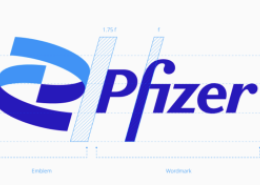Lipitor Provided an Unexpectedly Potent Heart Benefit in Patients with Chronic Stable Angina, According to New Study
(BUSINESS WIRE)--Pfizer announced today that Lipitor® (atorvastatin calcium) 80 mg showed unexpectedly potent reduction in myocardial ischemia (a condition defined by insufficient blood supply and oxygen to the heart) in patients with chronic stable angina (chest pain). These results were presented today at the annual meeting of the American College of Cardiology.
Lipitor significantly reduced the average number of ischemic events by nearly 70 percent and total duration of events by more than 60 percent from baseline to week 18 of the study, and sustained these effects until the end of the trial at week 26. In 60 percent of the patients treated with Lipitor, all ischemic events were completely eliminated by the end of the study. This resulted in a substantial decrease in angina attacks and need for nitroglycerin treatment.
“Ischemia is a serious condition in which the collective effect of minor untreated events can lead to a weakening of the heart muscle and the death of heart cells,” said Professor John Deanfield, British Heart Foundation Vandervell Chair of Congenital Heart Disease, professor of cardiology at University College London and lead investigator of the Double-Blind Atorvastatin Amlodipine (DUAAL) study. “These findings were a pleasant surprise because statins are not part of the current standard of care for the treatment of angina.”
About the DUAAL Study
The DUAAL study was a randomized, double-blind, multi-country study comparing Lipitor (n=103), Norvasc® (amlodipine besylate) (n=104) and a combination of the two (n=104) in patients with coronary artery disease and chronic stable angina. Patients received intensive usual care therapy for their coronary artery disease including beta- blockers, long acting nitrates and aspirin.
Lipitor also caused a significant reduction in C-reactive protein, a marker of inflammation that helps in identifying and stratifying individuals at risk for cardiovascular disease. The anti-ischemic results demonstrated by Lipitor alone were remarkably similar to those in patients taking Norvasc alone. Norvasc, a high blood pressure and anti-angina medication in the calcium channel blocker class, is a part of the standard of care for this patient population, so it was expected to have benefit on the patients studied. Norvasc also significantly reduced the average number of ischemic events by approximately 70 percent and total duration of events by more than 60 percent. This was mirrored by a substantial decrease in angina attacks and need for nitroglycerin treatment.
The combination of Lipitor and Norvasc also offered a significant reduction in ischemic events, but there was not an incremental benefit with the combination versus either Lipitor or Norvasc alone. Given the patient characteristics in this study along with the magnitude of ischemic benefits demonstrated by Lipitor and Norvasc individually, no additional benefits were demonstrated in the combination arm. The number of angina attacks and the need for nitroglycerin use was reduced to a similar degree as the ischemic events.
“Previous studies have suggested an anti-ischemic effect with Lipitor, but the magnitude of the benefit seen in this study is notable,” said Dr. Rochelle Chaiken, vice president of Pfizer global medical. “This study complements the cardiovascular benefits of Lipitor in a broad range of patients as demonstrated in more than 10 completed cardiovascular outcomes trials involving Lipitor.”
About Ischemia and Angina
Symptomatic myocardial ischemia is characterized by angina and affects more than 9 million Americans. People with any cardiovascular risk factor are at risk for developing ischemia.
Standard of care for the treatment of symptomatic ischemia typically focuses on reducing the heart’s need for oxygen or improving the supply of oxygen to the heart. This may include taking medications that slow the heart rate, reduce blood pressure and relax the blood vessels. Medication classes for ischemia include beta blockers, calcium channel blockers and nitrates.
About Lipitor
Lipitor is the only statin proven to provide a combination of impressive average LDL (“bad” cholesterol) lowering of 39 percent to 60 percent, significant and proven cardiovascular event reductions, and a well-established safety profile across a broad range of patients.
It is the most prescribed cholesterol-lowering therapy in the world, with nearly 144 million patient-years of experience. Lipitor is supported by an extensive clinical trial program involving more than 400 ongoing and completed trials with more than 80,000 patients.
Important U.S. Prescribing Information
Lipitor is a prescription medication. It is used in patients with multiple risk factors for heart disease such as family history, high blood pressure, age, low HDL (“good” cholesterol) or smoking to reduce the risk of a heart attack, stroke, certain types of heart surgery and chest pain.
Lipitor is also used in patients with type 2 diabetes and at least one other risk factor for heart disease such as high blood pressure, smoking or complications of diabetes, including eye disease and protein in urine, to reduce the risk of heart attack and stroke.
Lipitor is used in patients with existing coronary heart disease to reduce the risk of heart attack, stroke, certain kinds of heart surgery, hospitalization for heart failure, and chest pain.
When diet and exercise alone are not enough, Lipitor is used along with a low-fat diet and exercise to lower cholesterol.
Lipitor is not for everyone. It is not for those with liver problems. And it is not for women who are nursing, pregnant or may become pregnant.
Patients taking Lipitor should tell their doctors if they feel any new muscle pain or weakness. This could be a sign of rare but serious muscle side effects. Patients should tell their doctors about all medications they take. This may help avoid serious drug interactions. Doctors should do blood tests to check liver function before and during treatment and may adjust the dose. The most common side effects are gas, constipation, stomach pain and heartburn. They tend to be mild and often go away.
For additional product information, visit www.Lipitor.com.
NORVASC is indicated for high blood pressure and angina. In clinical trials, the most common side effects for NORVASC versus placebo were edema (8.3 percent vs. 2.4 percent), headache (7.3 percent vs. 7.8 percent), fatigue (4.5 percent vs. 2.8 percent), and dizziness (3.2 percent vs. 3.4 percent).
For additional product information, visit www.norvasc.com
Pfizer
Vanessa Aristide, 212-733-3784
Rebecca Hamm, 212-733-8811
917-599-7752-Onsite








